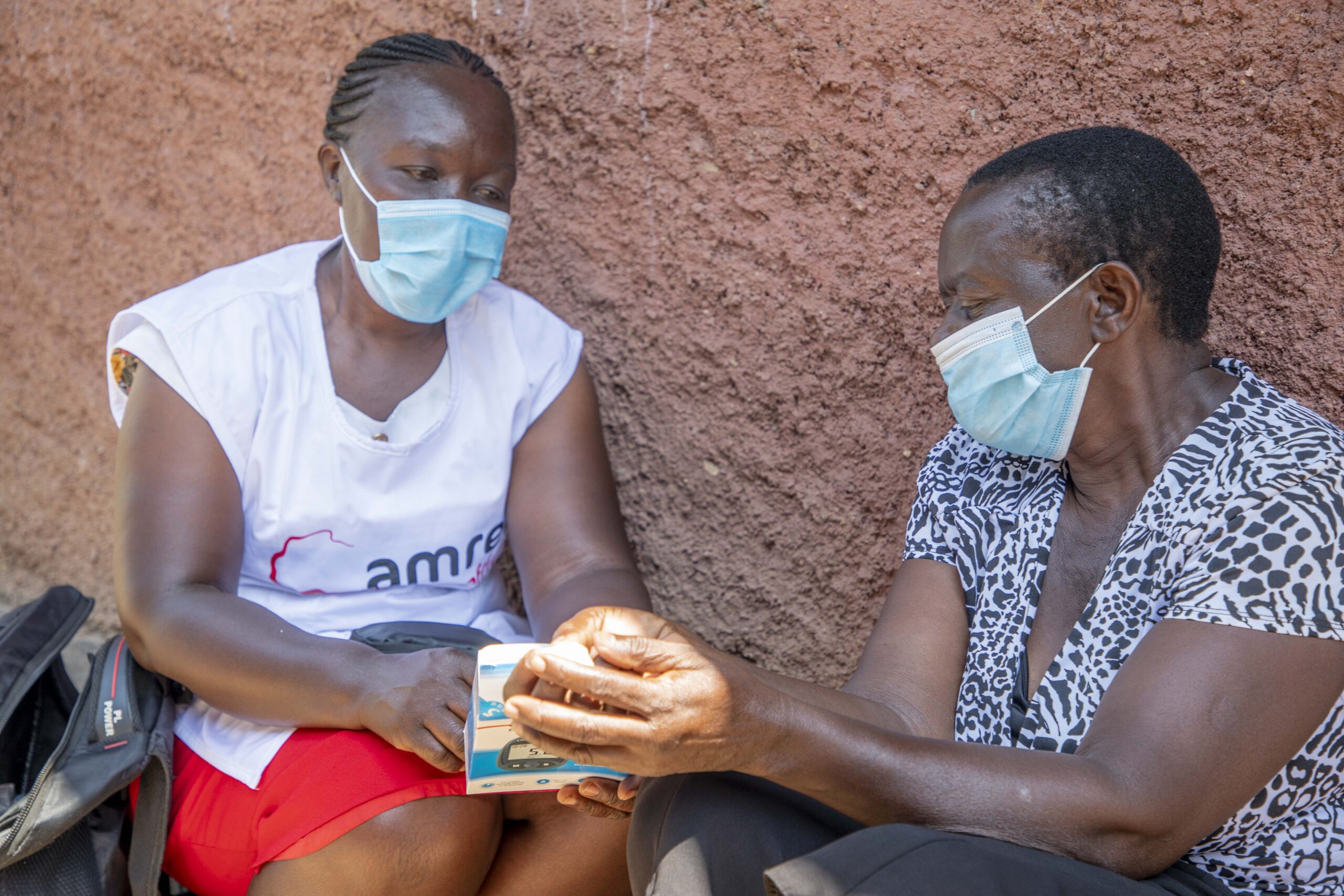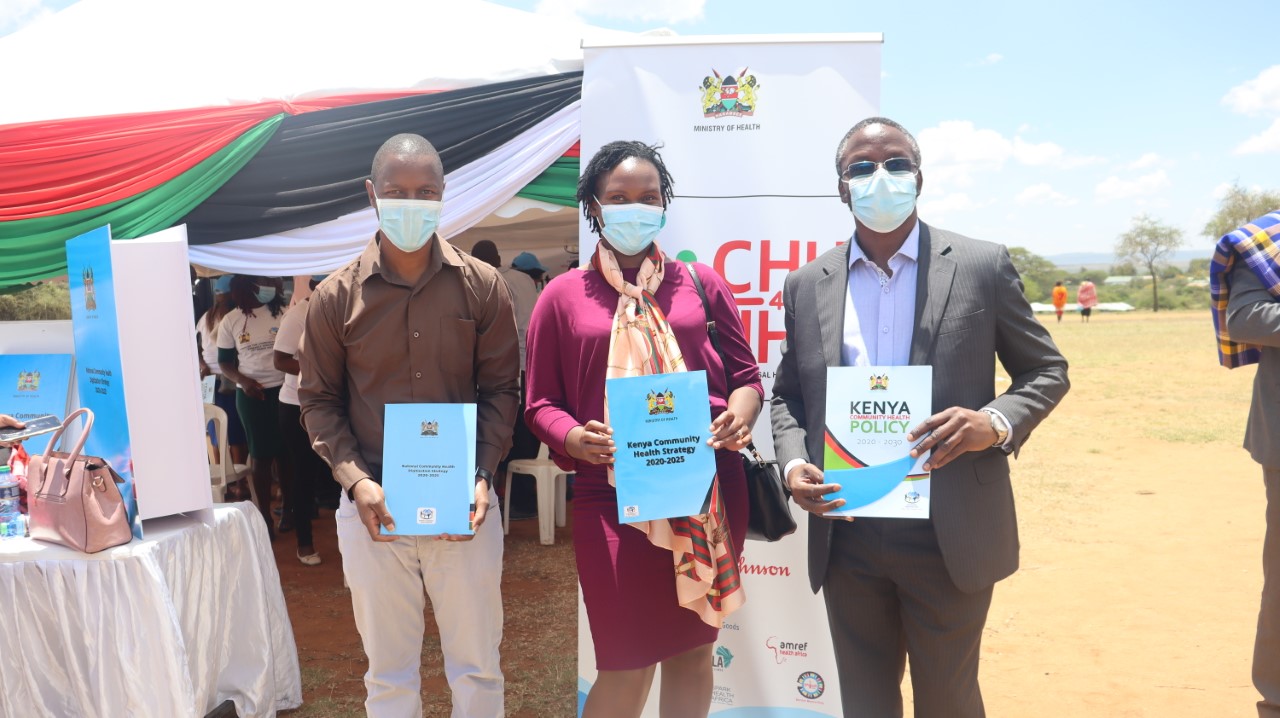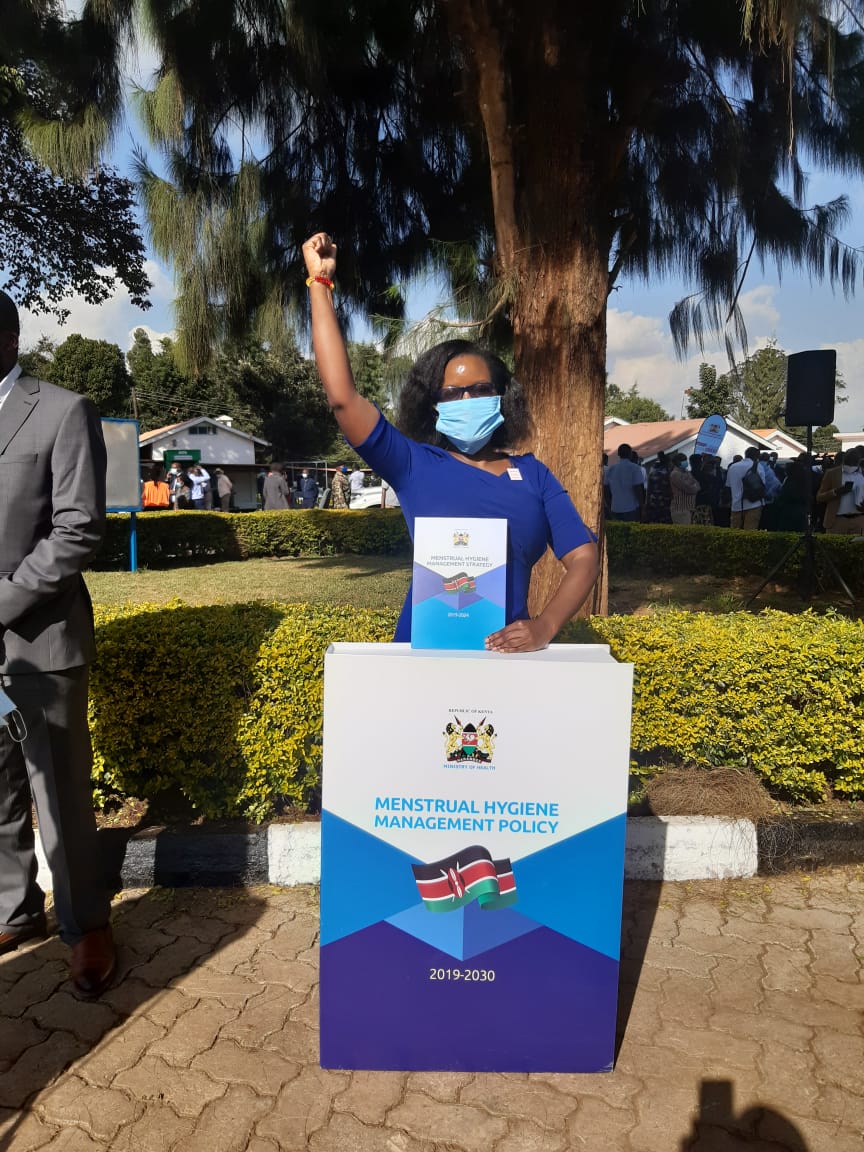School Health Club Patron Teaches Girls to Say No to FGM/C and CEFM
Tuesday, 8 October, 2019

“Know your worth”: A primary school teacher is teaching nomadic girls how to stand up for themselves and say no to FGM/C and CEFM.
Dolphine Akinyi is a 30 years old Kenyan teacher at Hawesha Girl Primary School, located in Sololo, Marsabit County. When she took her post three years ago in the Northern arid part of Kenya, she believed she would face similar challenges as her colleagues living in other rural areas: high level of poverty, near-absence of governmental infrastructures, lack of teaching resources and materials, high pupil-teacher ratio[1], and lack of engagement/interest from the parents. Nonetheless, she was ready to give her very best to her students and instill in them the same thirst for learning that was put in her. But a few months into her new role, she noticed that the female student dropout rate was catastrophic. Nomadic girls, who represented most of her students, would just stop coming to class, without any notice. When she approached the school administration about it, she was told that it was common for the Gabra and Borana girls to go through Female Genital Mutilation and Cutting (FGM/C) and Child Early and Forced Marriage (CEFM), leading them to drop out of school as young as 8 or 9 years old. Both practices were so embedded in these two communities that their prevalence rate were almost four time higher than the national average (respectively at 21 and 23%)[2], and had remained high despite multiple governmental and nonprofit organization interventions.
While she wanted to do something about it, her teacher training did not prepare her to speak about harmful cultural practices like FGM/C and CEFM. Coming from the Luo ethnic community, she was also unfamiliar with these traditions and did know how to bring such sensitive subjects with her young students. Thankfully, on July 2018, she heard about a USAID-funded initiative, called Koota Injena, who was offering a training on Sexual Reproductive Health and Rights and life skills[3] to primary and secondary school teachers from 20 schools located in Samburu and Marsabit counties. Teachers would also learn how to speak about FGM/C and CEFM with their students and facilitate fun and interactive activities (theater, debate, drawing, singing, dancing…) on these topics through the school health club. The goal was to build the capacity of teachers and in-school youth as volunteers – called champions – so they can engage their communities in intergenerational dialogue on the consequences of FGM/C and CEFM and the necessity to redefine the value of the girl. Koota Injena, which means “come let’s talk” in Borana, also train elders, woman, out-of-school youth and religious leaders as champions so they can contribute to challenge the status quo by facilitating community dialogues.
After attending the Koota Injena training along with 41 of her peers, Dolphine became her school’s health club patron, which now counts 62 active members. These trained patrons organized joint quarterly meetings where to date 2,191 in-school youth (1,260 F, 931 M) participated. One of them is 15-year-old Tiyyo Galgallo, one of Dolphine’s best students. She will be sitting for her Certificate of Primary Education exams in November 2019, which is an achievement since no other girl from her family has been able to stay in school for as long as she did. With Dolphine’s mentorship, Tiyyo has gained in confidence and assurance, especially when it comes to protecting herself and her future. “Thanks to my teacher, I know that my life is worth more than my community’s traditions. I know my rights as a Kenyan child, and I am ready to stand up against anything or anyone that might harm me”.
Koota Injena is a three years (2017-2020) USAID-funded proof of concept activity designed to implement and test the effectiveness of engaging clan elders, community leaders, and members, of using intergenerational dialogue and of strengthening positive youth and male engagement as levers to change norms and behaviours for the abandonment of CEFM, FGM/C and low value of the girl among the 40 clans of Samburu (nine clans), Borana (seventeen clans), Rendille (nine clans) and Gabra (five clans) communities in Samburu and Marsabit Counties.
[1] 56:1 against the recommended 40:1 in public primary school (Kenya Teachers Service Commission, 2018)
[2] Koota Injena Baseline, 2018
[3] Life skills refers to ten skills divided into three broad categories: communication and interpersonal skills; decision-making and critical thinking skills; and coping and self-management skills.
Amref Health Africa teams up with African communities to create lasting health change.




